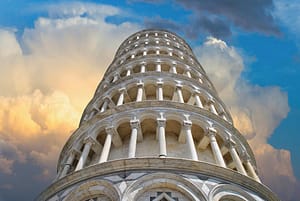LANGUAGE
Italian
CURRENCY
Euro
BEST TIME TO VISIT
April to June and September to October
NEAREST RAILWAY STATION
Pisa Centrale railway station
NEAREST AIRPORT
Pisa International Airport/ Galileo Galilei Airport (PSA)
EMERGENCY HELPLINE NUMBER
112
INTERNET ACCESS
Most locals have home connections and practically every hotel, B&B, hostel and agriturismi (accommodation on working farms or wine estates) offers free wi-fi (albeit patchy at times given many properties’ centuries-old thick walls or deeply rural location). Specialised internet cafes are practically non-existent.
VISA
Not needed for residents of Schengen countries or for many visitors staying for less than 90 days.
European citizens of the 26 countries in the Schengen Area can enter Italy with nothing more than a valid identity card or passport. British nationals only need a passport.
Residents of 28 non-EU countries, including Australia, Brazil, Canada, Israel, Japan, New Zealand and the USA, do not require visas for tourist visits of up to 90 days.
All non-EU and non-Schengen nationals entering Italy for more than 90 days, or for any reason other than tourism (such as study or work), may need a specific visa. For details, visit www.esteri.it or contact an Italian consulate.
EU citizens do not require any permits to live or work in Italy but, after three months’ residence, are supposed to register themselves at the municipal registry office where they live and offer proof of work or sufficient funds to support themselves.
Non-EU foreign citizens with five years’ continuous legal residence may apply for permanent residence.
You should have your passport stamped on entry as, without a stamp, you could encounter problems if trying to obtain a residence permit (permesso di soggiorno). If you enter the EU via another member state, get your passport stamped there.
Permesso di Soggiorno
Non-EU citizens planning to stay at the same address for more than one week are supposed to report to the police station to receive a permesso di soggiorno. Tourists staying in hotels are not required to do this. A permesso di soggiorno only really becomes a necessity if you plan to study, work (legally) or live in Italy. Obtaining one is never a pleasant experience; it often involves long queues and the frustration of arriving at the counter only to find you don’t have the necessary documents.
The exact requirements, such as specific documents and marche da bollo (official stamps), can change. In general, you will need a valid passport (if possible containing a stamp with your date of entry into Italy), a special visa issued in your own country if you are planning to study (for non-EU citizens), four passport photos and proof of your ability to support yourself financially. You can apply at the ufficio stranieri (foreigners’ bureau) of the police station closest to where you’re staying.
EU citizens do not require a permesso di soggiorno.
Study Visas
Non-EU citizens who want to study at a university or language school in Italy must have a study visa. These can be obtained from your nearest Italian embassy or consulate. You will normally require confirmation of your enrolment, proof of payment of fees and adequate funds to support yourself. The visa covers only the period of the enrolment. This type of visa is renewable within Italy but, again, only with confirmation of ongoing enrolment and proof that you are able to support yourself (bank statements are preferred).
HOTEL
We recommend these convenient hotels in Pisa, near top attractions like the Leaning Tower of Pisa and Piazza dei Miracoli:
Bologna Hotel Pisa: mid-range pricing, old-world feel, shops and restaurants nearby, free airport shuttle.
Hotel Alessandro della Spina: three-star hotel, friendly staff, spacious rooms and bathrooms, great breakfast.
Hotel Pisa Tower: affordable rates, steps from the Leaning Tower, elegant decor, four-poster beds.
Helvetia: budget hotel, convenient location, whimsical decor, beautiful old building, quiet street.
COST OF LIVING
Avoid the summer – Summertime is hot, crowded, and expensive. Tourist flock to the city as they stop by on their way through Italy, so accommodations are pricier and harder to come by. Consider going in the off season around February when the weather is a perfect 70 degrees and you have the town to yourself.
Pass on the bread – Some restaurants will charge you extra for bread or breadsticks on the table but not tell you about it until the check comes, and you’ve polished it off. Send it back if you don’t want to be tempted.
Drink the tap water – Ask for tap water or you will automatically get expensive bottled water included on your bill. Moreover, you can refill your bottles of water at any of the drinking fountains throughout Italy. The water is fine to drink.
Eat a panini & pizza – Eating out every meal in the popular cities of Italy is an expensive affair. Buy paninis and pizza by the slice for just a few dollars, and save a lot of money.
Couchsurf – Accommodation is quite expensive in Italy. Use Couchsurfing to stay with locals who have extra beds and couches for free, get a kitchen, and make a local friend! I use the service a lot and find it not only saves me money, but I meet great people too.
Go on a free walking tour – This is a great way to learn the history behind the places you are seeing and to avoid missing any must-see stops. AiroTour Pisa has a tour that can show you what the city has to offer. Advance reservations are required.

